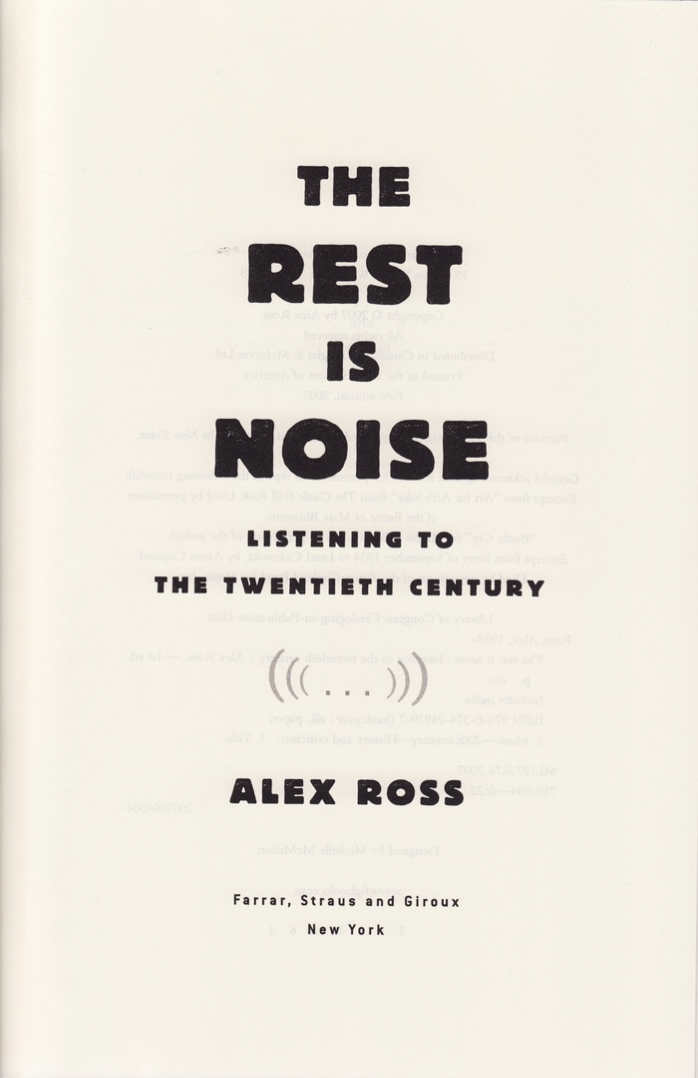I believe I heard about this book  when it was first published and it was something that intrigued me. I had dabbled in listening to twentieth-century classical music in my twenties, but didn’t really start digging deeply until I began singing with the choir at Holy Name Cathedral in Chicago. The choir director at the time, Matt Walsh, programmed a lot of twentieth-century (and twenty-first-century as the millennium turned) music for the masses. It wasn’t necessarily great for the congregation—Poulenc’s choral motets aren’t really the sort of thing that the typical person in the pews is likely to sing along with, even if the music was available to them which it wasn’t—but for the choristers, it was amazing. Nothing really gets one into the heart of the harmony like singing choral music.
when it was first published and it was something that intrigued me. I had dabbled in listening to twentieth-century classical music in my twenties, but didn’t really start digging deeply until I began singing with the choir at Holy Name Cathedral in Chicago. The choir director at the time, Matt Walsh, programmed a lot of twentieth-century (and twenty-first-century as the millennium turned) music for the masses. It wasn’t necessarily great for the congregation—Poulenc’s choral motets aren’t really the sort of thing that the typical person in the pews is likely to sing along with, even if the music was available to them which it wasn’t—but for the choristers, it was amazing. Nothing really gets one into the heart of the harmony like singing choral music.
Ross, in this book, tends to focus on operatic music, beginning with Richard Strauss’s Salome whose 1906 Graz performance had in attendance a wide variety of contemporary composers from Puccini to Schoenberg to Alban Berg and the widow of Johann Strauss II. He follows the course of “classical” music (really, the term should apply to eighteenth-century music only, rather than the common appellation to anything performed with orchestral instruments and occasional voices) through the twentieth century and its eventual decline in the popular consciousness as first jazz then pop and rock took its place until it became the domain primarily of a small cultural elite. It was a bit surprising to read of American GIs arriving in Germany to find the elderly Richard Strauss and knowing who he was. Few living composers now would be able to claim such currency.
As a finite work, it leaves out a lot that readers might want to know more about. The first half of the century claims more than half the page count, with the fifties arriving roughly two-thirds of the way through the book, but the middle section, comparing the development of music in Stalin’s Russia, Roosevelt’s America and Hitler’s Germany was especially fascinating.
Leave a Reply